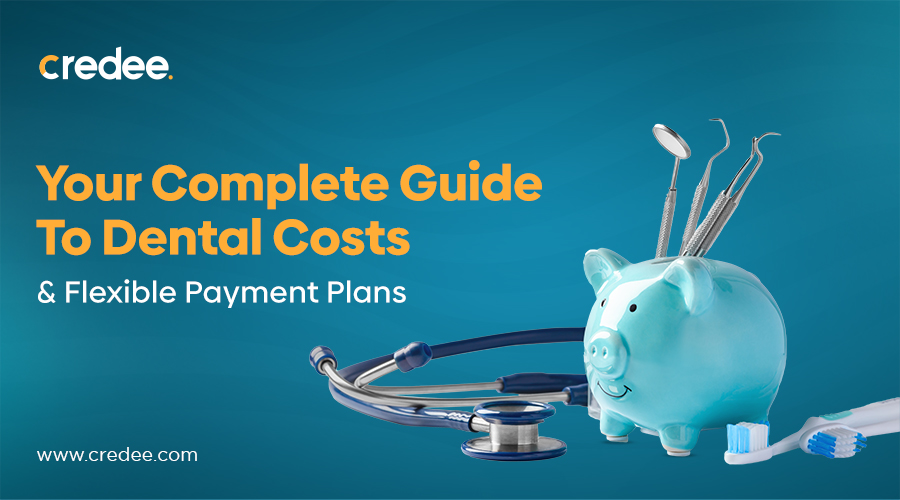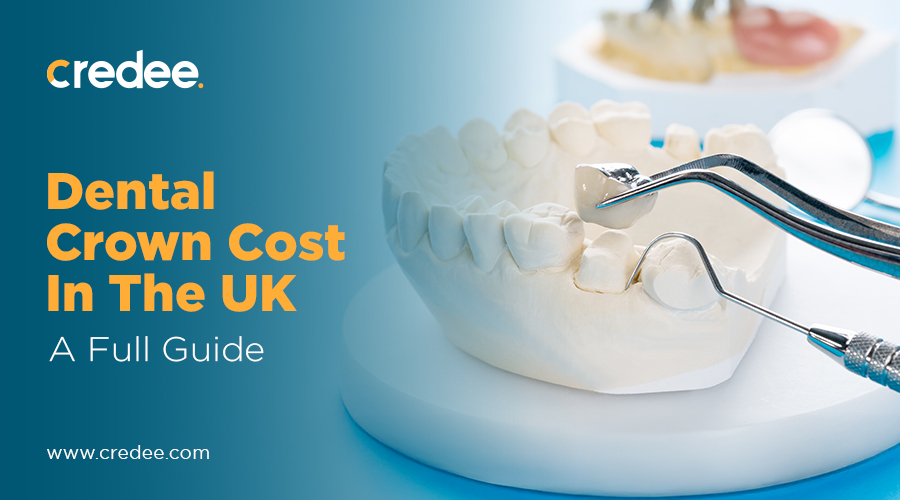
People often don't realize the lasting repercussions of below-par dental conditions until it's too late. The daunting reality is more than half of Americans delay dental care because of financial barriers. Amid this challenge, Dental PPO plans, also known as Dental Preferred Provider Organization plans, play a crucial role in protecting both your smile and your wallet.
Want to learn more about the Dental PPO Plan? Read on!
What Are PPO Dental Plans?
A PPO plan, also known as a Preferred Provider Organization plan is a regular plan and typically includes a network of contract-based dentists. These dentists deliver specified dental services for a lesser price as described under the signed agreement.
To put things into perspective, here’s what you need to understand. This network of dental care providers allow specific family members to choose their doctors and specialists without needing a referral. Ultimately, you get the most coverage if you choose this group's healthcare providers and hospitals. Alternatively, you can go to hospitals outside of the group as well.
Basically, plan enrollees have two options to choose from:
- In-network dentist
- Out-of-network dentist
In-network dentists - They are also known as participating providers. Being part of an insurance company, they agree to offer dental services at lower rates.
Out-of-network dentist - An out-of-network dentist doesn't have a deal with insurance companies. They might take insurance, but they're free to charge patients the full fee for their services.
Dental Financing: Ways To Pay For Dental Implant Grants
How Does PPO Dental Insurance Work?
In a dental PPO plan, patients can pick from a large group of dentists who agree to charge lower rates for their services. This means they don't charge the regular full price but offer a discounted fee instead. When patients meet a PPO dentist, they pay a part of this discounted rate, and the insurance company covers the rest.
These plans typically offer lower out-of-pocket costs for services received from in-network dentists, including routine cleanings, exams, fillings, and other dental procedures. Moreover, PPO dental plans may have annual deductibles, coinsurance, and maximum benefit limits, which members should be aware of when seeking dental care. All in all, PPO dental insurance provides members with the flexibility to select their dentist while still offering cost-saving benefits for utilizing in-network providers.
What PPO Dental Insurance Covers?
PPO dental insurance typically covers a range of preventive, basic, and major dental services.
Here's a breakdown of what is commonly covered by a PPO dental plan:
Preventive Services: These often include routine dental exams, cleanings, X-rays, and fluoride treatments.
Basic Services: Basic dental services typically include fillings, simple extractions, and minor restorative procedures like dental crowns or bridges.
Major Services: PPO dental plans may also cover more extensive procedures, such as root canals, periodontal treatments, dental implants, and complex oral surgeries.
Orthodontic Treatment: Some PPO dental plans offer coverage for orthodontic treatment, including braces or clear aligners.
Emergency Dental Care: PPO dental insurance typically covers emergency dental treatments, such as treating toothaches, repairing chipped or broken teeth, or addressing dental trauma.
Out-of-Network Coverage: While PPO dental plans encourage members to use in-network providers for cost savings, they often provide coverage for services obtained from out-of-network dentists as well. However, members may incur higher out-of-pocket costs for out-of-network services.

Need Some Help Choosing a Dental Plan?
Schedule a DemoFactors To Evaluate Before Purchasing A PPO Plan
Maximum Benefit
It is the most money your PPO plan will pay for your covered dental care in one year. If your dental bills surpass this limit, you'll be responsible for paying the extra costs. Fortunately, PPO plans often have high maximum benefit limits, so it's rare for people to reach them.
Waiting Periods
When you get dental insurance, there's a waiting period before certain services are covered. While some PPO plans skip this waiting period, it's not always a downside; it helps both you and the insurance company budget more effectively.
Deductibles
A deductible is the amount you have to pay from your own pocket for dental care before your insurance starts helping out.
Preferred Provider Organization (PPO) vs. Health Maintenance Organization (HMO)
With HMO plans, you have to stick to a specific doctor for all your healthcare needs, and they have to permit you to see a specialist. Unlike, with PPO Plans you have more freedom to choose your doctors and can see a specialist without needing permission from your main doctor.
PPO plans cost more in comparison to HMO because they give you more freedom to choose your doctors and hospitals. Plans with lower out-of-pocket expenses, like ones with low deductibles and copayments, cost more because the insurance company covers more of the costs. On the other hand, plans with lower premiums mean you'll have to pay more for your healthcare, but it's cheaper for the insurance company.
In the past, most people in employer groups preferred PPO plans. But nowadays, they want different options for their healthcare. That's why many employers offer HMO plans too. Even though HMO plans are cheaper, some people prefer them because of the lower cost. Moreover, comparatively PPO plans have more freedom and services.
Pros And Cons Of PPO Dental Health Insurance
Pros
- You don't have to choose a primary doctor.
- No referral is required to meet another doctor.
- More flexibility compared to other plans.
- You have control over what you want, but it might cost you more.
Cons
- Costs more each month.
- Required more upfront payment.
- You have to keep track of which doctors are cheaper.
Getting instant insurance benefits may not be easy. Choose Credee to cover medical expenses promptly!
How Credee Is A Strong Alternative To Dental Insurance
Having a PPO plan isn't possible for everyone. When unexpected dental problems happen, insurance might not be able to help right away. And you might not have money ready to pay for it.
Opting for flexible payment plans provided by Credee makes paying for dental expenses more manageable. With Credee, you can choose to visit dental providers that provide payment plan options. Ideally, dental practices that provide payment plan options have enabled patients to pay for the desired treatment without added pressure. Additionally, its no credit check financing makes dental care more accessible.
The Bottom Line
Many dental insurance plans are available for you to choose from. You can decide which one works best for your needs. Choosing a Dental PPO plan can indeed save you money on dental treatments. But, make sure you know what you're getting into before you agree. Check the policies and find out how much you'll have to pay. Also, think about deductibles, waiting periods, and the most they'll pay for your care.
Still, if you are not convinced with these insurance options, you can go for alternatives such as Credee, and get access to a network of dentists that offer payment plans through Credee.
FAQs
1. What Is A PPO?
A preferred provider organization (PPO) is a type of health insurance plan that enables individuals to receive medical services from providers within or outside of the established network. Visiting in-network providers usually results in reduced costs, whereas utilizing out-of-network services often incurs higher expenses.
2. Does A PPO Cover Out-Of-Network Care?
Yes, you have the flexibility to seek treatment from healthcare providers outside of the preferred network. Nonetheless, it's crucial to note that seeking such care often results in increased expenses, with the PPO providing reduced coverage or none at all.
3. Do PPOs Require A Referral To See A Specialist?
With a PPO, you have the liberty to receive medical treatment from any provider, regardless of their network status. This grants you the flexibility to consult any healthcare professional or utilize any hospital facility. Moreover, PPO plans, eliminate the need for you to designate a primary care provider and not impose referrals for specialist visits.
4. What’s The Difference Between HMO And PPO Plans?
Under an HMO, you select a primary care physician (PCP) who coordinates your healthcare needs and refers you to specialists within the HMO network when necessary.
However, with a PPO, you have the flexibility to visit healthcare providers both in and out of the network. While this allows you to choose any doctor or hospital, including specialists like cardiologists, keep in mind that seeing out-of-network providers may result in higher out-of-pocket costs.
Additionally, PPO plans generally come with higher premiums compared to HMOs.
Unsure if dental insurance is worth considering? Choose Credee payment plans!
Write To Us


